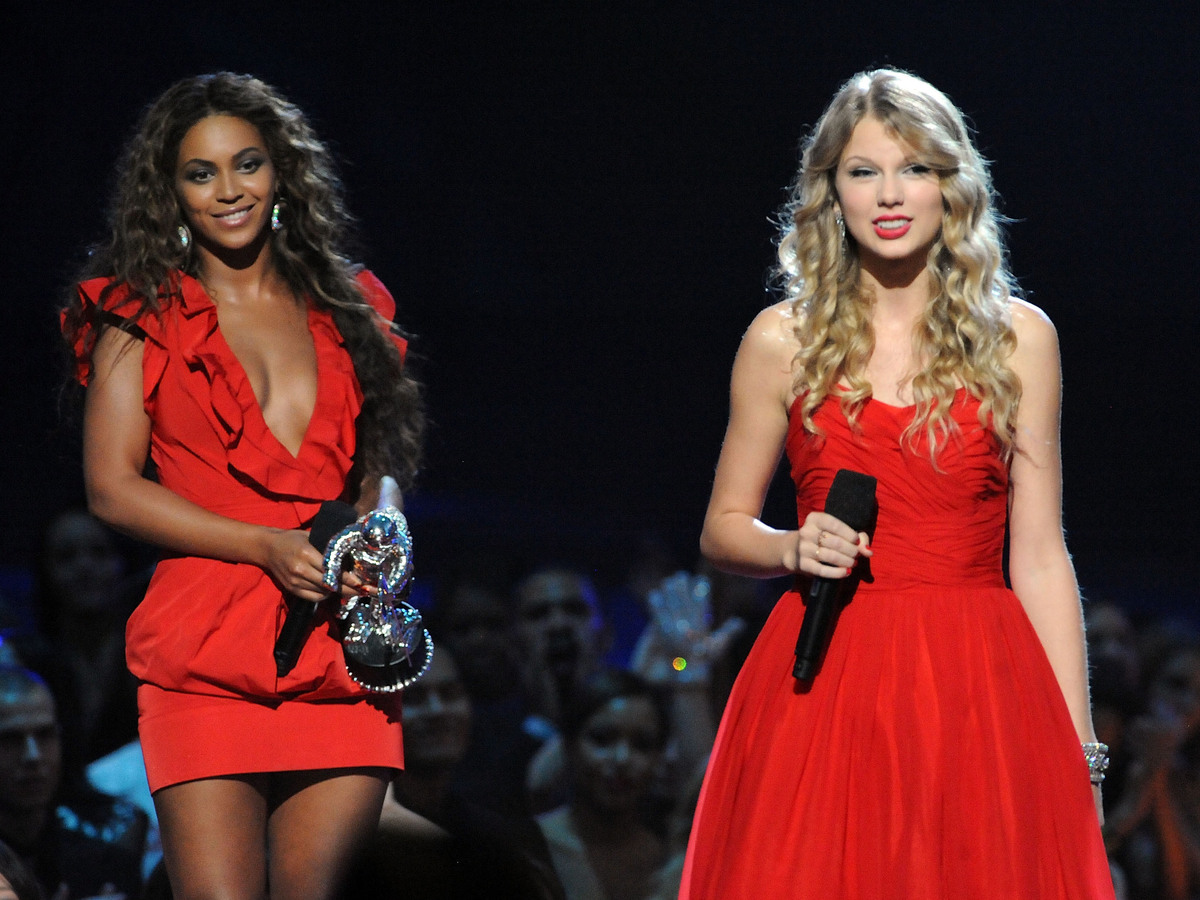
NEW YORK - SEPTEMBER 13: Taylor Swift and Beyonce onstage during the 2009 MTV Video Music Awards. Photo by Jeff Kravitz/Contributor/FilmMagic, Inc hide caption

NEW YORK - SEPTEMBER 13: Taylor Swift and Beyonce onstage during the 2009 MTV Video Music Awards.
Photo by Jeff Kravitz/Contributor/FilmMagic, IncIt was the year of Beyoncé! It was the year of Taylor!
Both musicians had highly successful tours, highly successful concert films and both women pumped billions into the economy. And each has been supportive of the other this year, and in the past. So why is there a narrative that they're rivals?
NPR's Juana Summers revisits the year that was for Beyoncé and Swift, and talks to Miami University of Ohio Music Professor Tammy L. Kernodle about the tendency of society, and the media, to pit successful women in the music industry against one another.
Email us at
This episode was produced by Brianna Scott. It was edited by Courtney Dorning. Our executive producer is Sami Yenigun.

 Live Radio
Live Radio